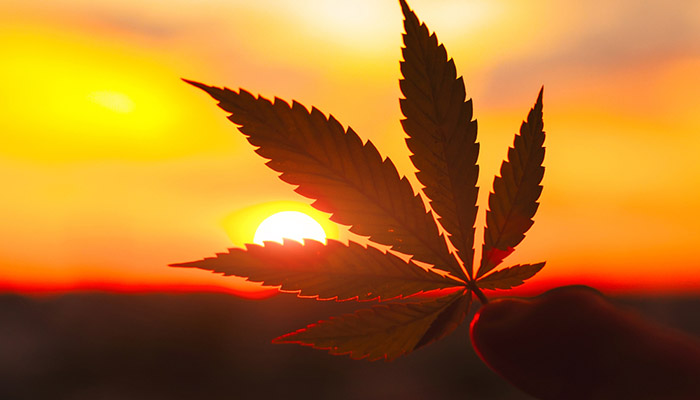Shutterstock
In last week’s midterm elections, three states passed marijuana legislation, including legalization in Michigan – could legalization be coming for the US?

Michigan became the tenth state of the union to legalize marijuana. It also became the first Midwestern state to legalize cannabis.
Marijuana use is legal for both recreational and medical use in the following ten states: Washington, Oregon, California, Nevada, Colorado, Michigan, Vermont, Massachusetts, Maine and Alaska.
The use of medical marijuana is legal in the following 21 states: Utah, Arizona, New Mexico, Montana, Oklahoma, North Dakota, Minnesota, Missouri, Arkansas, Louisiana, Florida, Ohio, West Virginia, Pennsylvania, New York, New Hampshire, Maryland, Delaware, Connecticut, Rhode Island and Hawaii.
Marijuana use is legal for both recreational and medical use in the following ten states: Washington, Oregon, California, Nevada, Colorado, Michigan, Vermont, Massachusetts, Maine and Alaska.
The use of medical marijuana is legal in the following states: Utah, Arizona, New Mexico, Montana, Oklahoma, North Dakota, Minnesota, Missouri, Arkansas, Louisiana, Florida, Ohio, West Virginia, Pennsylvania, New York, New Hampshire, Maryland, Delaware, Connecticut, Rhode Island and Hawaii.
With marijuana becoming legal in the Great White North with our Canadian neighbors, will they set a paradigm that will change the mindset of lawmakers in the US?
With Sessions out federal marijuana legalization could gain momentum
Former Attorney General Jeff Sessions was strongly opposed to marijuana and had revoked guidelines issued under the Obama administration, known as the Cole Memorandum, which had discouraged federal enforcement of marijuana laws in states where it was legal for medical and/or personal use.
Sessions had threatened to override state laws were marijuana had been legalized to enforce federal laws which prohibit it. However, he was widely criticized for such his statements and his resending of the Cole Memorandum, and ultimately did not move forward with enforcing federal marijuana laws on states.
Last June, Senate Minority Leader Chuck Schumer (D-New York) announced that he was introducing legalization to criminalize marijuana at the federal level.
“If smoking marijuana doesn’t hurt anybody else, why shouldn’t we allow people to do it and not make it criminal?” Schumer said.
Representative Tim Ryan (D-Ohio) wrote an opinion piece for CN in titled: “Rep. Tim Ryan: Marijuana should be legal in all 50 states.” In the well-researched article, the Ohio House of Representatives member wrote a convincing opinion for legalization, and pointed out how the prohibition of marijuana is “doing irreparable harm” to communities across the US, doing more damage than good both economically and to the lives of individuals.
He also called out the hypocrisy of an American being able to legally buy the product in one state, while they could be arrested in another. Ryan pointed out how 1 in 4 Americans are in prison for low-level drug offenses.
1.The Respect State Marijuana Laws Act of 2017 (House Bill 975).
The bill calls for amending the Controlled Substances Act so that its language does not apply to people complying with state marijuana laws.
Total current co-sponsors: 35
The bill calls for deregulating marijuana federally and include prohibitions such as interstate sales and trafficking.
Total current co-sponsors: 19
The bill calls for amending the Internal Revenue Code to provide for taxation and regulation of marijuana products.
Total current co-sponsors: 9
The bill calls for removing marijuana from the Controlled Substances Act; transition oversight of marijuana to the Bureau of Alcohol, Tobacco, Firearms and Explosives; and to treat marijuana similar to alcohol under federal statutes.
Total current co-sponsors: 21
Senate Majority Leader Mitch McConnell (R-Kentucky) helped push through “the Farm Bill” which provides for the legal cultivation, processing and sale of industrial hemp.
This was seen as a big boon to farmers, as marijuana legislation in America was allowing other countries to dominate the US in hemp-related products, simply because farmers could not grow industrial hemp without potentially facing criminal penalties.
“Consumers across America buy hundreds of millions in retail products every year that contain hemp,” Senator Mitch McConnell (R-Kentucky) said in a floor speech on Thursday. “But due to outdated federal regulations that do not sufficiently distinguish this industrial crop from its illicit cousin, American farmers have been mostly unable to meet that demand themselves.
It’s left consumers with little choice but to buy imported hemp products from foreign-produced hemp.”